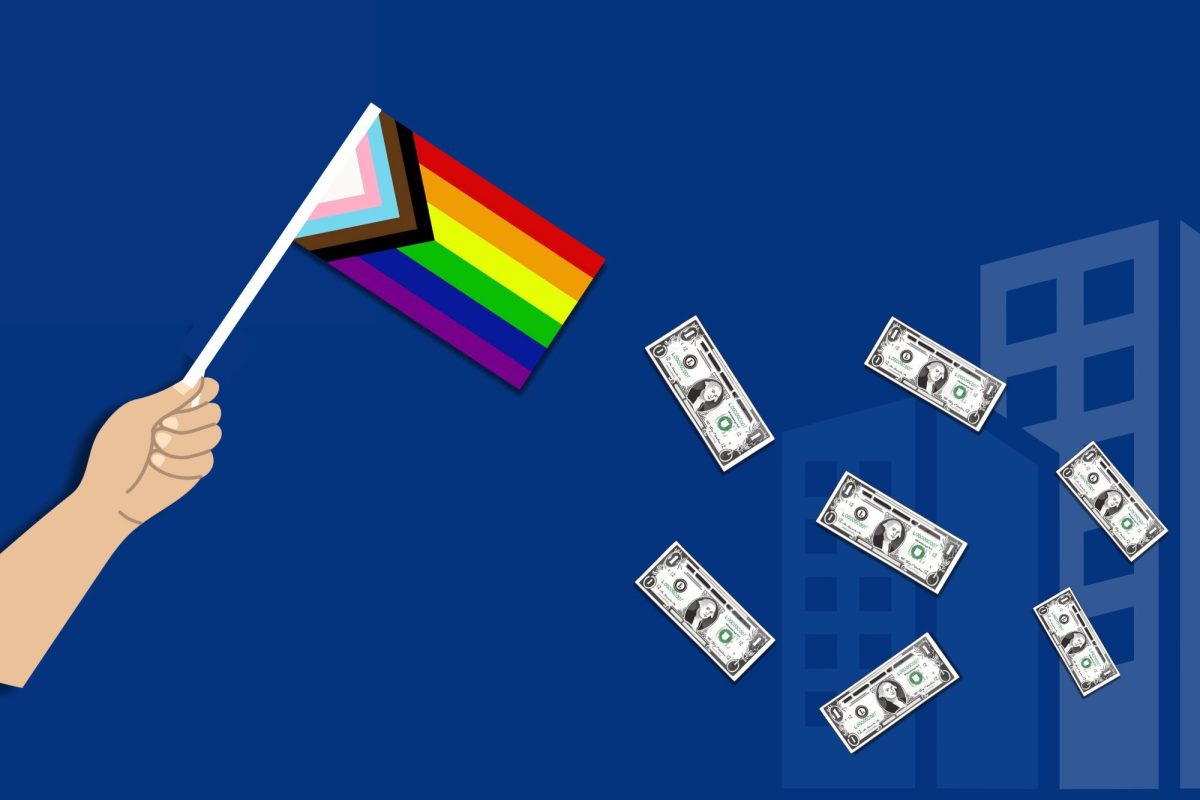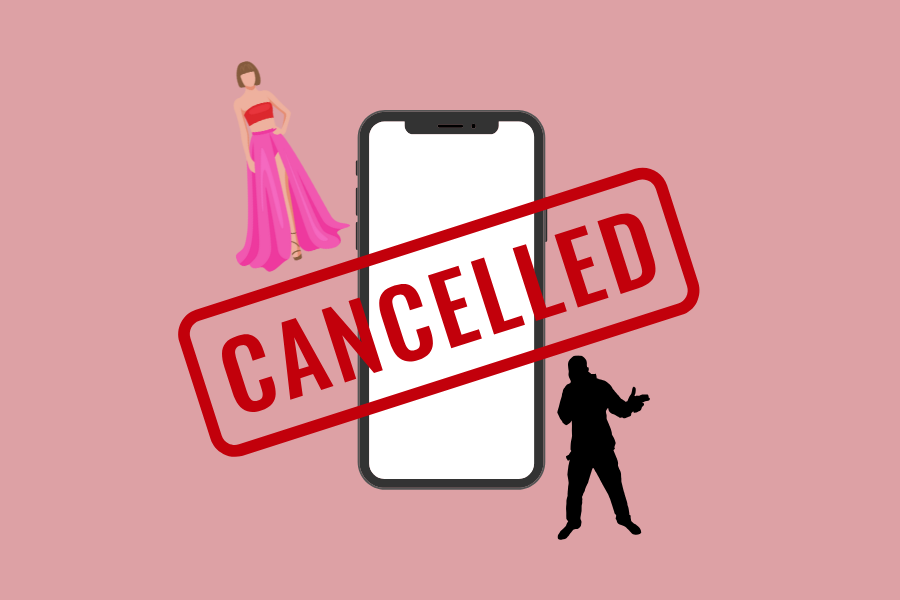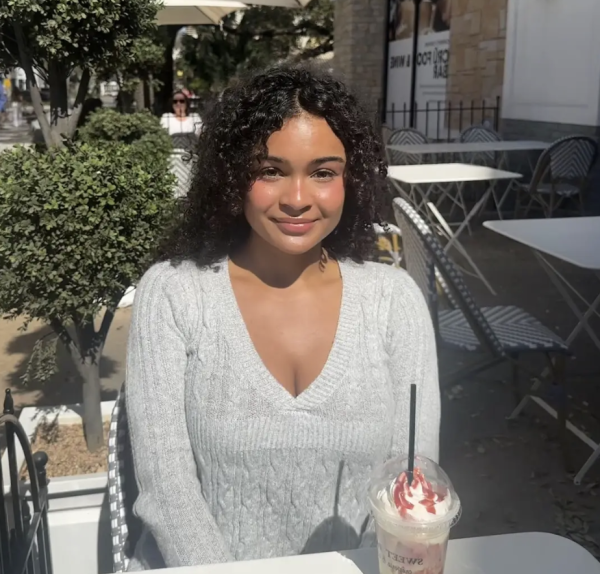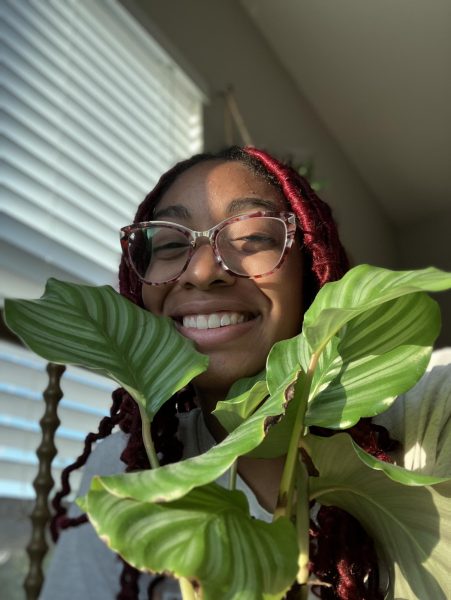Doom scrolling through social media is inevitable. Especially in this day and age, coming across controversial content on social media content is nothing new. The content in question gets its five minutes of recognition, then is forgotten. A prime example of this is 20v1’s, a new genre of YouTube video that’s centered around one subject and 20 participants seeking a date. The subject or the “main,” is usually a guy or a girl and the other 20 participants are usually the opposite gender. The format is very similar to speed dating, but much more vulgar and brassy.
The host will sit backstage while the main rejects or accepts the contestants starting off asking basic questions. However, the questions soon morph into more risque, intimate topics. The risque content of 20v1’s garnered mixed reactions from viewers when these videos came out. While some disliked them and thought they were out of pocket, others enjoyed them for that exact reason, cultivating a specific audience of young susceptible teenagers. These types of videos easily get a million views on YouTube, and clips posted on social media get a lot of traction. However 20v1 videos are exploiting people for views, and promoting harmful stereotypes toward the Black community and even sexualizing children.
While a 20v1 is similar to speed dating, it’s very different at the same time. In speed dating, the effort is usually mutual, and participants both ask and respond to questions. But with 20v1 there is a huge imbalance of power. Immediately the main is placed on a pedestal, so naturally, the 20 participants will try to outperform each other in order to be chosen. Some will do the most to avoid being rejected. Participants will flat out argue with the host and the main, and even sexualize themselves in order to secure their spot. Even though the advertised ending is finding a perfect match, the true intentions of the video are much more twisted. The centerpiece behind these videos is to create controversies at other people’s suspense.
These videos have harmful effects toward society more specifically towards the Black community, enforcing certain Black stereotypes by only showcasing Black people in a certain light. Many Black women feel that dating as a woman of color is a struggle already, due to harsh or untrue prejudices. The popularization of this type of content has set the Black community back, and made them feel like they have to overcompensate for these harmful stereotypes against them dating culture. Lah Mike, a YouTuber who makes 20v1 videos, said many viewers felt that the Black YouTube community is “cooked right now,” and that he was going to “try to face that.”
In response to the Black community’s criticism, Mike did a 20v1 with Black single mothers to acknowledge and appreciate them, with the goal in mind to “make some single Black moms taken.” In this video, single Black mothers were looking for a romantic relationship with the famous rapper, Lil Woody. Lil Woody was accompanied on this episode by another host, the popular child rapper, Lil Rt, and these two would stand on stage. The single Black mothers came on stage one by one and introduced themselves, with their child or children present. One single mom walked into frame with her daughters and asked Lil Woody if he would rather date an adult actress, or an adult dancer. Another single mom came on stage with her son, with Lil Rt asking her son about his intimate relationships. For a video claiming to have a positive objective, the nature of the conversations seemingly contradicts it. These types of conversations reinforce the drawn out idea that Black women are promiscuous and easy. These ideas date back to before the 15th century, when European travelers first went to Africa and were shocked by the cultural differences. Tribal practices and seemingly revealing clothing gave Europeans the impression that African women are immodest and lustful. These harmful ideas were further upheld during slavery. Slave owners would frequently sexually assault enslaved women, excusing the crime by claiming that Black women have a never ending sexual appetite. From then on, these dangerous stereotypes have been repackaged and implemented in different ways to this day.
Mike may be attempting to find love for single Black mothers, but in reality he’s projecting a negative representation of Black women as a whole. Further, since the target audience is viewers between the ages of 12 to 24, it leaves an impressionable mark, especially when the frontal lobes of viewers in the target demographic’s frontal lobe most likely aren’t fully developed yet. The people who consume this content could be subconsciously internalizing these negative beliefs to be true, affecting their own perception of dating Black women.
In addition to their harmful depictions of Black women, many 20v1’s also sexualize children. While many people enjoy this content, all the participants in these events should be 18 or older.
Mikeadelabu, another 20v1 YouTuber, attempted to make a kid friendly version featuring Lil Rt, but they failed miserably. In the beginning of this video, Mikeadelabu makes it clear that the objective is to find Lil Rt, who is underage, a girlfriend. When one of the participants came on, Mikeadelabu asked her if she would date Lil Rt. After she says no, he then proceeds to say “but you came out here,” insinuating something more. Mikeadelabu also asked Lil Rt inappropriate questions in front of the participants, asking Lil Rt if he liked a girl’s looks or if he’d “ever have two girlfriends.”These questions out of context are not problematic on their own, but when they are directed towards underage Black girls, it becomes gross. These types of comments contribute to the adultification of Black girls, and it forces them to be perceived in a certain light, especially in media.
A study done by Georgetown Law Center on Poverty and Inequality showed that Black girls between ages five and 14 were perceived to be less innocent and more educated on adult topics, than, White girls in the same age group. These subconscious perceptions are harmful, because they affect how society treats Black girls. With these stereotypes floating around, these types of videos just add fuel to the fire.
These types of videos capitalize off of oversexualizing children and perpetuating harmful stereotypes toward dating in the Black community, and Black women and girls. But in the face of backlash, many of these YouTube channels aren’t doing anything to address or stop it, with some even using the bad press to rake in more profit. In the end, viewers should really contemplate the content they’re interacting with, whether it’s reposting a clip or leaving a hate comment. The content you choose to interact with has a big impact both your and other people’s perception of people, and often only further perpetuates harmful stereotypes. Undoubtedly, any interaction with content, whether it be good or bad, aids in the growth of those content creators, giving them a platform to put out anything they see fit.
Media like 20v1 advertises harmful stereotypes about the Black people in order to create profit which does harm to the Black community as a whole. And we need to think if this is the content we want to support by interacting with or we want to oppose by not engaging with their content. Something. Free will is the most valuable thing we possess and what you choose to do with it can make the biggest difference.










Jerald • Dec 15, 2024 at 4:19 pm
Y’all mad Lil Rt getting play at age ten than you guys at eighteen. He the youngest rapper to get play!! I’m tired of y’all discriminating against black people and their culture! What makes you think you can insult the entire black community because they are teaching their kids what’s right! They are growing up future black pimps! Necessary for our society to prosper.
Black Lives Matter! Black Culture Forward!